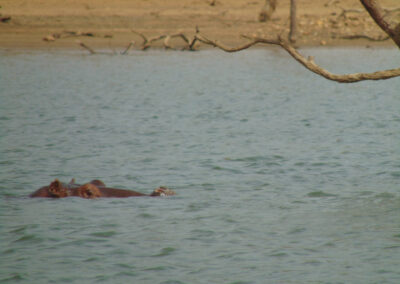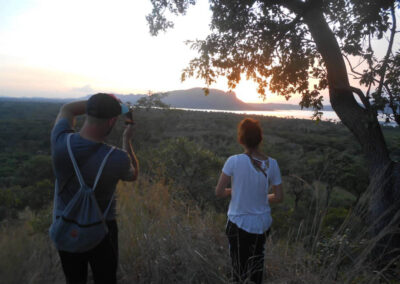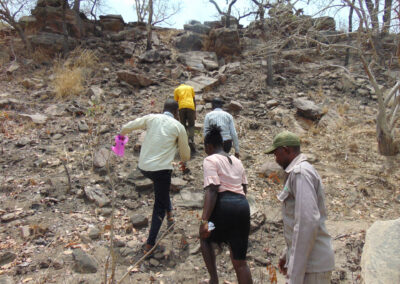About Us
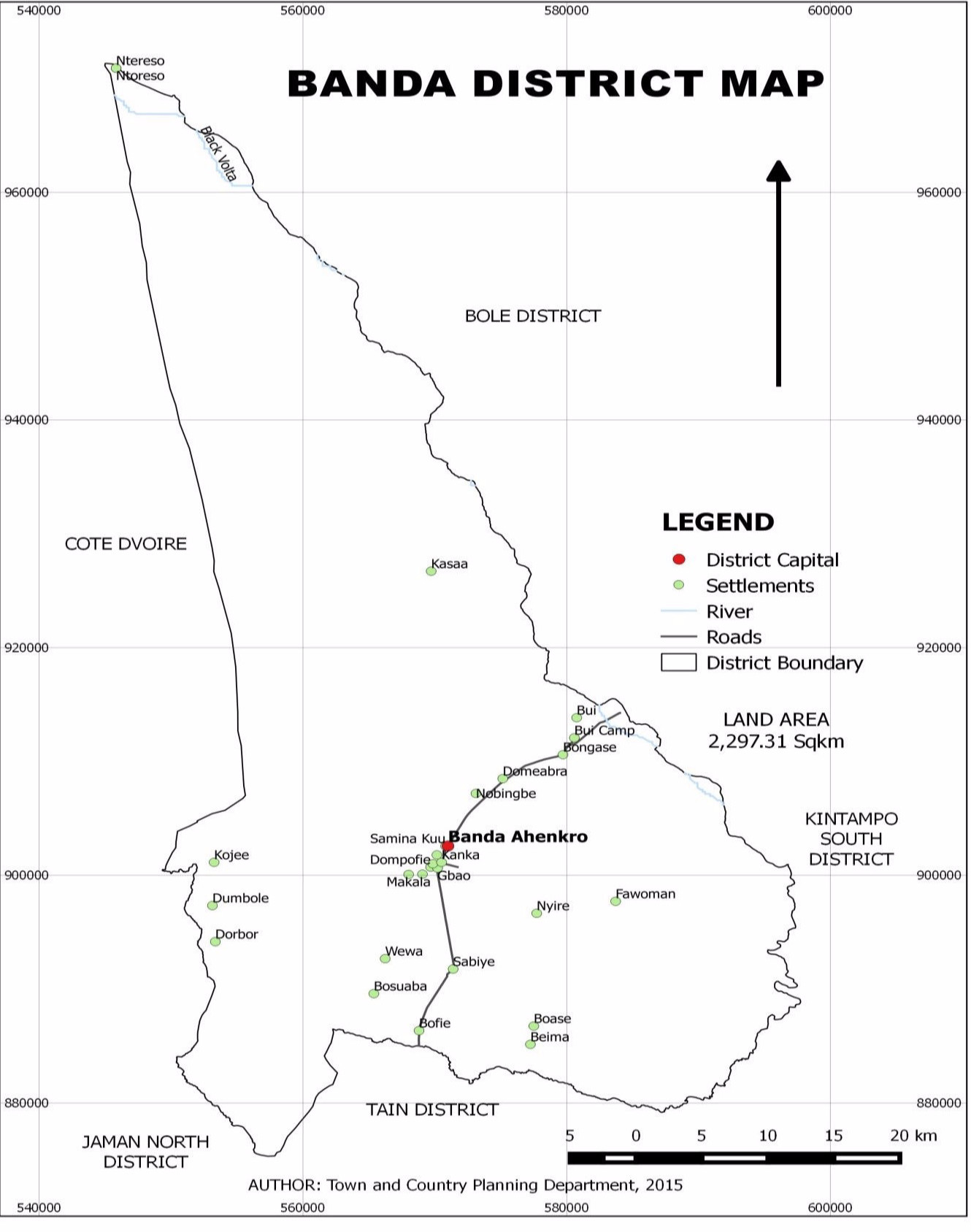
The Banda District Assembly (BDA) is one of the Two Hundred and Fifty-Four (254) Metropolitan, Municipal and District Assemblies (MMDAs) in Ghana and among the Twelve MMDAs in the Bono Region. It was carved out from Tain District in 2012. It was created and inaugurated on 28th June 2012 under Legislative Instrument (LI) 2092. The District has Banda Ahenkro as its capital.
Banda District lies within latitudes 7o and 8o 45` North and longitudes 2o 52` and 0o 28` West. The District shares boundaries with the Bole District (Northern Region) to the North, Tain District to the south, La Cote D’Ivoire to the West and Kintampo South to the East. Banda Ahenkro, the District capital is 126 kilometres away from Sunyani, the regional capital (approximately 2 hours 47 minutes by road). In terms of land area, the District covers a total of 2,298.35 kilometres square out of the regional size of 39,558 kilometres square.
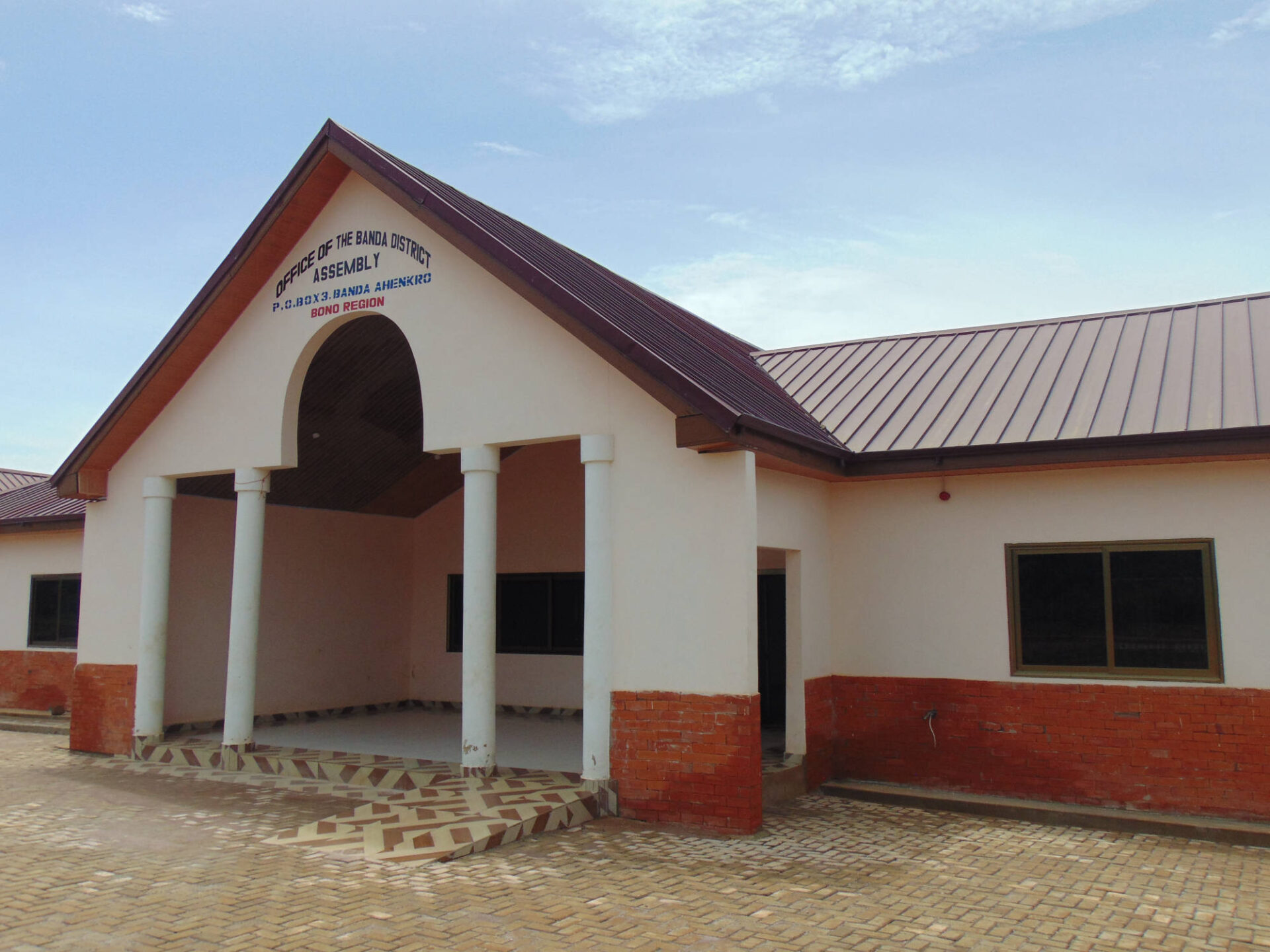
POPULATION AND DEMOGRAPHY
The District which is entirely rural has a population size of about 24,330 people who reside in 33 communities. The distribution of the population by sex indicates that there are 12,433 males constituting 51.1% and 11,897 females representing 48.9%. The district has a population growth rate of 2.6%.
THE ECONOMY OF THE DISTRICT
The health of the district’s economy determines the kind of investments that would take place and the resources that would be available for public infrastructural projects. This focuses on the various components of the district’s micro-economy and how they relate to the development prospects of the district.
There are three sectors in the District. Majority of the people are found in the primary sector specifically farmers, fishermen, to mention but a few. Those in the primary sector cultivate yam, pepper, cassava, groundnut, cowpea and plantain in large quantities. Apart from these food crops, the District is also a major producer of cashew for export. Fishing activities also go on in the District at Bongase but this is on a small scale basis. The secondary sector which comprises a few people employed as builders, dressmakers, and carpenters to mention but a few. With regard to tertiary sector, services such as communication provided by all Ghanaian Telecommunication networks are present with the exception of GLO and Espresso. For banking services apart from ECOBANK and ZENITH Bank which are located at Bui, there is also the Nafana Rural Bank located in the district capital, Banda Ahenkro.
Though the nature of the economy is a primary, there is no agro-based industry to process raw materials in this sector.
MAJOR ECONOMIC ACTIVITIES
Agriculture:
The District is entirely rural and most of its households (78.6%) engage in agricultural activities whiles 21.4 percent are non-agricultural households.
The major food crops grown are yam, maize, plantain, cocoyam and cassava. Major vegetables grown are tomatoes, garden eggs, okro and pepper. Cash crops grown are cashew and shea nut. The acquisition and availability of land, favorable weather conditions, high soil fertility, double maxima rainfall pattern, ease of land acquisition among others make production high and place the District as an investment destination.
Mining and Quarrying:
Large quantities of gold deposits are found in the District. Exploration done on the stretched of table mountain many years ago indicates there is large quantities of gold.
Stone quarry is a potential resource because the mountains contained hard rocks which were evidenced during the construction of the Bui hydroelectric project. These rocks were quarried and used for the construction of the dam.
Manufacturing and Others:
About 3.1 percent of the populations are into manufacturing but not into agro- processing for which the District has a comparative advantage. Cashew which is produce in large quantity can be processed for export and local consumption.
Other economic activities in the District include transport, storage, accommodation and food services activities (4.2%), to mention but a few.
Even though there is availability of vast acres of land for development, no real estate activities go on in the District.
ADMINISTRATIVE STRUCTURE
The Assembly has eleven (11) Departments and other Units with Head of Departments who all report directly to the District Coordinating Director (DCD) and ultimately to the District Chief Executive.
The General Assembly meetings are presided over by the Presiding Member (MP). The General Assembly meeting has a Membership of eleven (11) comprising of six (6) Elected Members, three (3) Government Appointees, one (1) Member of Parliament and the District Chief Executive who also chair the Executive Committee.
In the performance of its functions, the Banda District Assembly works through nine (9) Sub-Committees. These Sub-Committees perform deliberative functions and submit recommendations to the Executive committee for further deliberations and then to the General Assembly for final decision and implementation. The nine (9) Sub-Committees include; Social Services, Finance &Administration, Development Planning, Justice & Security, District Education Oversight Committee (DEOC), Illegal Mining Committee and Spatial Planning Committee.
CORE FUNCTIONS OF THE BANDA DISTRICT ASSEMBLY
Section 12 of local Government Act, 2016 (ACT936) which establishes the Assembly also mandates it to perform among other functions;
• Be responding for the overall development of the district;
• Formulate and execute plans, programs and strategies for the effective mobilization of the resource necessary for the overall development of the district;
• Promote and support productive activity and social development in the district and remove any obstacles to initiative and development;
• Sponsor the education of students form the district to fill particular manpower needs of the district especially in the social sector of education and health, making sure that the sponsorship is fairly and equitably balance between male female students;
• Initial programmers for the development of basic infrastructure and provide municipal works and service in the district;
• Be responsible for the development, improvement and management of human settlement and the environment in the district;
• In co-operation with the appropriate national and local security agencies, be responsible for the maintenance of security and public safely in the district
• Ensure ready access to courts tin the district for the promotion of justice;
• Act to preserve and promote the cultural heritage whining the district
• Initiate, sponsor or carry out studies that may be necessary for the discharge of any of the duties conferred by this Act or any other enactment; and
• Perform any other functions that may be provided under another enactment.
INVESTMENT OPPORTUNITIES
CASHEW PROCESSING:
Cashew production in the Banda District is mostly carried out by smallholder farmers (90%). The past nine years experienced a growing interest in cultivation of the crop, due largely to high demand and flourishing export markets. Approximately 5,000 farmers in the District are engaged in cashew cultivation, with most farmers located in the communities.
Government, through the Ministry of Food and Agriculture and the Ministry of Trade and Industry, in recognition of the economic potential of cashew production is currently developing a 10-year cashew sector master plan to structure the value chain — aimed at increasing production from 70,000 metric tons to 150,000 metric tons per annum by 2025.
The district has the land and technical support to help people venture into cashew, sheanut, groundnut, cassava and groundnut production. Apart from cultivation and exportation of the produce in their raw state, it is important that measures are put in place to create value chains out of them. The DADU and the District Assembly should encourage farmers to cultivate these crops that have access to both domestic and international market. The cultivation of such crops in commercial quantities can even attract companies that produce juice and related products to set up in the district to take advantage of the available of the raw materials.
There is also vast arable land which can be used for large plantation farms. As a result of inadequate funds for the local farmers, they are not able to fully utilize the arable land in the District. When it comes to cashew, Banda is one of the Districts noted for high production, but no cashew processing plant has been established in the District. If a plant is established, apart from attracting other services, it will create employment opportunities for the teeming youth and in the long run lead to the socio-economic development of the District.
CASHEW PRODUCTION AND PROCESSING
There is a huge opportunity for cashew processing facility in Banda for the processing of cashew fruits into fruit juice for local consumption and also for export. There will be enough raw materials to feed the fruit processing facility as closer districts like Tain, Jaman South, Jaman North, Bole and others are all cashew producing areas. Moreover, investing in the creation of new fruit farms in the District for export is also viable as there are vast areas of land for such an activity.
SUPPORTING INITIATIVES
There have been agencies involved already in the District helping farmers to produce more of cashew fruits and some of these agencies are:
Export Trade Agriculture and Industrial Development Fund (EDAIF), ADRA have helped to train 200 farmers on the good agricultural practices and the introduction of good varieties of cashew seedlings to farmers.
INVESTMENT REQUIREMENT
Establishment of cashew-fruit processing facility.
Storage Facility to store the raw materials (Fruits)
Transportation of raw materials to the processing facility. Construction of feeder roads to create direct access to the various farms.
MOU shall be signed to ensure legal usage of the land for the project.
An initial investment of $100,000 will be needed to kick start the project
FISH INDUSTRY
Banda District is rich with rivers and dams which can be used to carry out fishing activities to feed fishing industry. Fishing and its associated activities are also booming due to the large reservoir the Bui Dam has created.
These rivers are capable enough to produce fish for consumption and surplus for commercial purposes. These rivers include the Black Volta and the Bui Dam. Potential investment includes fish cultivation whereby different species of fish can be planted in these Rivers and Dams.
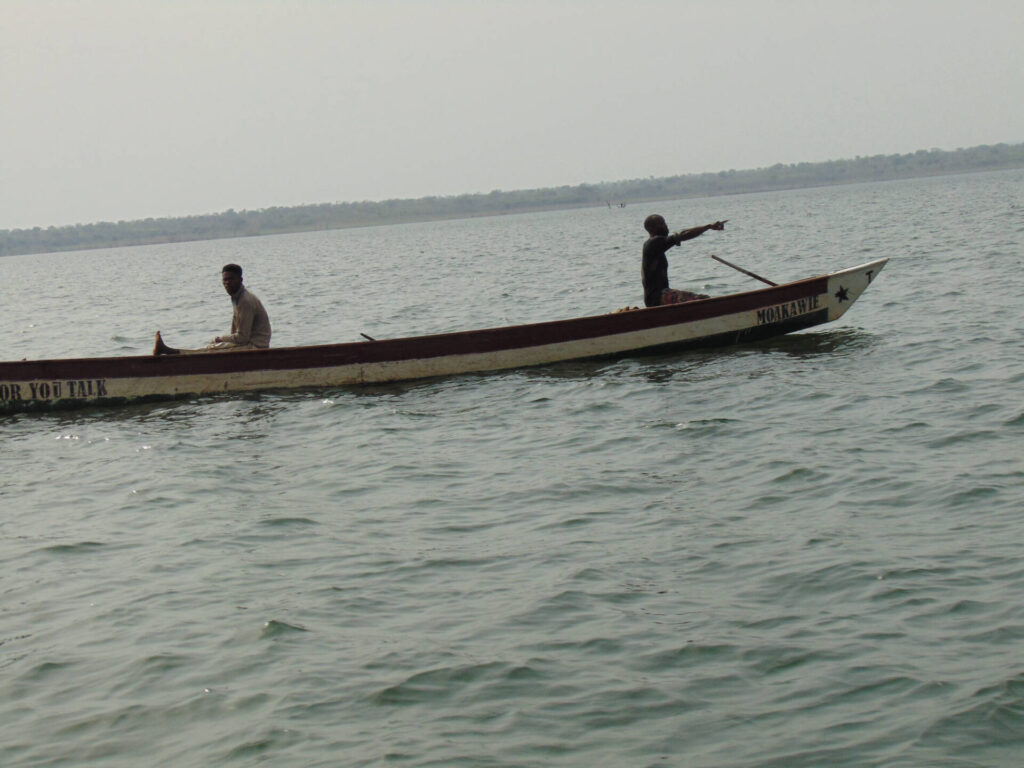
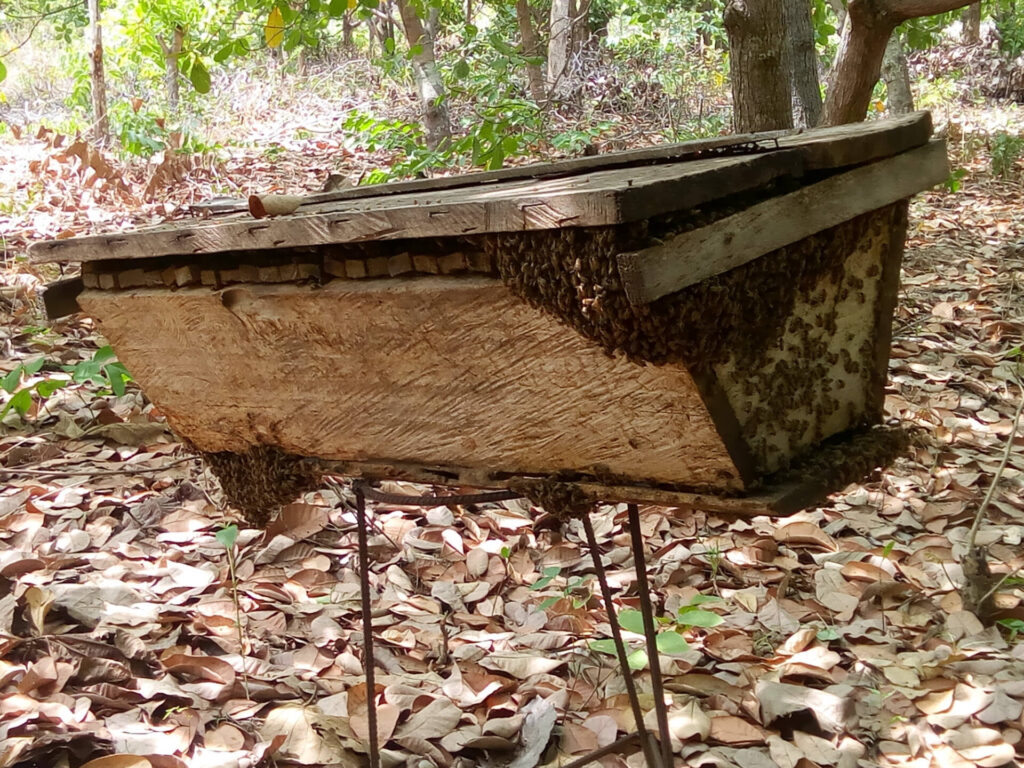
BEE-KEEPING INDUSTRY
Bee-keeping in Banda District is an economic activity practiced by the community. However the District does not have many beekeepers that are into the venture. But recently, the residents are increasingly engaging in beekeeping activities in many parts of the district and they have formed beekeeping groups to produce honey and wax products in large amount. All Communities in the District have suitable environment for beekeeping activities. The activities are being carried out in water catchment areas and a number of forest reserves, community forest and others.
TOURISM INDUSTRY:
The Banda District has a number of attractive tourism potentials which are Natural Heritages. The District is endowed with tourist attractions such as the Bui National Park, series of mountains and hills, Bui Dam and Banda Cave.
BUI NATIONAL PARK
Bui National Park in the District is a renowned home of large schools of hippopotamus. The park occupies an estimated area of 1,821 square kilometres of mostly woodland savannah with dispersed and riverine gallery forests. This wild habitat stretches as far as Brong Ahafo and into northern Ghana and part of Ivory Coast in the west.
Some of the animals in the park include Hippos, Monitor lizards, Fruit bats, Waterbuck, Baboons, Green monkeys, Patas, Bushbuck and other species of wildlife such as Butterflies, Amphibians and others. More than 250 birds are found in the bird.
Other interesting attractions in Bui are Stalactites caves, Lush mountains and Water cascades. The caves harbour bat colonies and it’s worth waiting to see the sun set over the mountains of Bui.
The local people celebrate their annual ancestral yam festival in September – October when there is a general home-coming by indigenes domiciled elsewhere to join the festive season. Visitors may also go out in traditional dugouts with local fishermen.
Tourist activities awaiting you at Bui National Park include game viewing, bird watching, and adventure hiking. Nearby villages may also be visited for true African insights and Ghanaian hospitality.
Awards & Testimonials
2012 – Creation & Growth
Banda District was inaugurated in 2012 and has since established structures for planning, finance, agriculture, and social services.
2019 – Expanding Services
New health facilities, water projects, and classrooms were delivered to strengthen education, health, and sanitation.
2020 – Recognition & Partnerships
Our collaborations with NGOs like Resource Link Foundation, SODIA, and Bright Generation Community Foundation have been recognized regionally.
2021 – Sustainable Development Goals
The Assembly aligned its District Medium-Term Development Plan with the UN SDGs, ensuring inclusive and climate-resilient growth.
Get In Touch
Get In Touch
Address
P. O. BOX 3
BANDA AHENKRO
BONO REGION - GHANA
BC - 0012 - 7563
Phone
(+233) 24-081-4398

